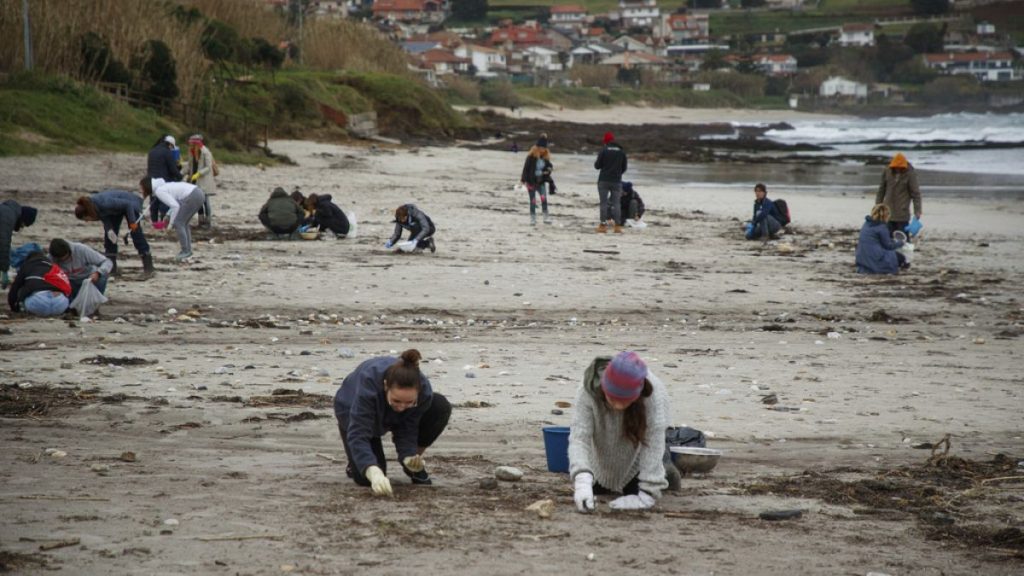The European Union has taken a significant step towards curbing microplastic pollution by agreeing on a draft regulation targeting the accidental release of plastic pellets. This move comes in response to a major incident last year where 26 tonnes of pellets spilled into Spanish waters, highlighting the vulnerability of marine ecosystems to this form of pollution. The agreement, reached by a majority of EU environment ministers, proposes extending existing legislation to encompass shipping activities, a significant source of pellet discharge. This decision sets the stage for potential conflict with the European Parliament and Commission, both of which currently hold opposing viewpoints regarding the inclusion of shipping within the regulation’s scope. The proposed legislation aims to contribute to the EU’s ambitious goal of reducing overall microplastic pollution by 30% by 2030.
The focus on shipping arises from the understanding that the transport of plastic pellets, the raw material for various plastic products, represents a substantial risk for accidental release. The incident in Spain, involving a ship sailing under a flag of convenience, demonstrated the potential for large-scale environmental damage from such spills. Spain, understandably, strongly advocated for incorporating shipping within the regulation’s ambit, emphasizing the importance of signaling a commitment to international partners within the International Maritime Organization (IMO). While Spain is willing to accept a slightly extended transitional period for the maritime sector, the overall consensus among ministers leaned towards stricter regulations and penalties for non-compliance. The agreement stipulates significant fines, up to 3% of a company’s EU turnover, for serious or repeated violations of the new transport and reporting rules, with the possibility of criminal proceedings remaining at the discretion of individual member states.
Despite the broad support, the decision to include shipping within the regulation is not without its detractors. Greece, a prominent maritime nation, along with Cyprus and Malta, voiced dissent, citing the lack of a comprehensive impact assessment and arguing that the move infringes upon the principles of subsidiarity and proportionality. They maintain that a global solution brokered through the IMO is preferable to unilateral action by the EU, a position echoed by Latvia. These dissenting voices raise concerns about potential negative impacts on the competitiveness of European shipping industries and emphasize the need for international cooperation to address the issue effectively.
Beyond addressing shipping, the agreement includes a provision for reviewing other significant sources of unintentional microplastic release, such as tire wear and paint particles. This recognition acknowledges the multifaceted nature of microplastic pollution and the need for a holistic approach to mitigation. It is noteworthy that the regulation specifically targets unintentional releases, while the intentional use of microplastics in products like cosmetics and sports pitches is covered under separate legislation, both contributing to the overall 30% reduction target. The agreement, despite the controversial context surrounding the Hungarian presidency, represents a significant step forward in addressing microplastic pollution within the EU.
The European Parliament, aligned with the position of including shipping in the regulation, now faces the task of negotiating a final version of the text with the Commission and the Council. The Commission, however, remains opposed to extending the regulations to shipping, citing concerns about the practicality of enforcing such rules given the international nature of maritime transport and the potential impact on European competitiveness. This sets the stage for complex tripartite negotiations under the upcoming Polish presidency, where reconciling these differing perspectives will be crucial. The Commission’s skepticism underscores the inherent challenges of regulating an internationally mobile industry and highlights the need for carefully crafted legislation that balances environmental protection with economic considerations.
The scale of pellet loss in Europe remains difficult to quantify precisely, but Commission estimates suggest a staggering volume between 52,000 and 184,000 tonnes in 2019 alone. This underscores the magnitude of the problem and the urgency of implementing effective measures to control pellet discharge. The Spanish incident, involving a comparatively small spillage of 26 tonnes, serves as a stark reminder of the localized environmental consequences that can arise from such releases and the potential for much larger-scale damage if left unchecked. The upcoming negotiations will be pivotal in shaping the future of microplastic regulation within the EU and will require careful consideration of the scientific evidence, economic implications, and international context to achieve a balanced and effective outcome.

